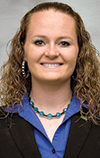Bedwell has been judging since his high school days through FFA and throughout his collegiate career. He has been a judge at the National Western Stock Show since he joined the faculty of Colorado State University in 2007.
“I really enjoy judging at National Western Stock Show. There is that tradition. A lot of major stock shows have tradition, but National Western is special. The stadium arena in itself – there is an aura about it and that arena,” Bedwell states.
He continues, “Down in the livestock yards, judging down in the yards, that’s amazing too. There is not another venue like that anywhere, and that is what makes the stock show great. They have hung on to the traditions. You still have the same venue that was there when it started.”
Judging on the hill versus down in the yards is different, and judges look for different standout qualities in the cattle.
“On a pen show, down in the yards, you are looking for the uniformity, and you are looking for big things relative to muscle and performance and trying to find those animals that excel as a group. The yard shows are more focused on the commercial man. Big things like soundness, growth and uniformity are important,” Bedwell explains.
He adds, “On the hill, you are focused on the added quality, and you are judging more so individuals and not judging on the average. On the hill, you are trying to find that perfect one rather than the group that puts the standards together.”
In all the cattle, he is looking for those animals that stand out in their greatness. “For breeding cattle for me, it would be feet and leg soundness. Structure and how it ties into the animal’s balance is important, and that goes hand in hand with proportional correctness.”

Balancing form and function
“There needs to be a form and function result, for both bulls and females. With heifers, they have to make cows when they are done, so they need good rib shape, body and have that natural ability while still being not too fat.
They still need to have that athletic look for a bull, and a female still being fresh and correct and having tremendous body capacity,” Bedwell explains.
When he judges, he tries to pick out the cattle that he likes. “The hardest part is trying to obtain the goal of making everyone happy, knowing that you are not. I started out thinking I need to make everyone happy about what I have picked, but that doesn’t work.
“Now, I try not to confuse anyone along the ring and just do the best job I can. One thing that I found is you are always adjusting to the set of animals that are in front of you rather than trying to go out and find your favorite kind. Even if my favorite is not in there, I’m still judging,” he says.
Now he focuses on being the best he can be for every show. “Integrity and honesty are ultimately important. It goes back to the common question: If you can’t lay down at night and be happy with the decisions you made in that show, it’s not the place for you.”
He adds, “I love picking a champion. When that champion happens to match up with someone who has never won before, or someone who has really worked hard, that’s the culmination of everything. Hopefully, if I do my job right, at least one person can take something from it and hope to get a better one.”
Roots from the ranch
Bedwell grew up on a cow-calf operation, where his family raised a rotational cross-type cow with Angus, Red Angus and Herefords. They also had a backgrounding operation, where they took in stocker cattle and backgrounded them on wheat stalks.
“Growing up in Kansas, I was surrounded by a great ranch industry. That is great livestock country and that along with my grandparents and my parents. Thoroughly in debt to all of those things that have gotten me to the point that I am now,” he states.
Although Bedwell did not grow up showing cattle regularly, he did have a few opportunities to do so, and he thinks those experiences helped him to be a better judge.
“You see the bigger picture of it a lot more when you have done both. Sometimes, on the showing side, you get a little barn-blind. As a judge, there is no agenda, and there shouldn’t be.
“I had a greater appreciation of those guys that had gone before me of judges when I showed: the mental toughness and all the decisions that you have to make,” Bedwell explains.
He knew from an early age that he wanted to have a career around livestock.
“From day one, and my dad will tell you this, I hated being in the tractor. I wanted to go do something with the cattle. Knowing more about them, trying to breed the next great one and trying to find or create the ideal is a lot of fun,” he says.
While pursuing his master’s degree, Bedwell had the opportunity to coach a livestock judging team, and now he coaches the team at CSU. “I have the luckiest job in the whole world. I get to work with the best and brightest breeders, the best livestock and the best and most focused youth,” he states.
His favorite part is watching the students he works with get better. “I love seeing the development of the kids, the students I work with. Seeing how they go from point A to point B, the changes that they make not only in judging but personal lives and personal character; seeing that is so gratifying,” Bedwell explains.
He attends every major livestock show in the U.S. every year, either as a judge, with a judging team or both. “To see all of the major livestock shows every year, that’s tremendous,” he says.
Getting to where he is today took hard work and dedication, and the faith of others in the industry. “There were some guys that took a chance on me. I didn’t have that showing background and necessarily the name to get me in those circles.
“I really tried to go into every show I did and not try to judge the show in order to get more shows. It was more about doing my best, trying to do it the right way, and if more shows led to that after that, that was great.
“It’s been crazy how that has evolved. I never would have dreamed I would be judging at National Western Stock Show,” he says. “I’ve been really blessed to have some really neat opportunities.” ![]()
Robyn Scherer is a freelance writer based in Colorado.
PHOTOS
Photos provided by Shane Bedwell.











